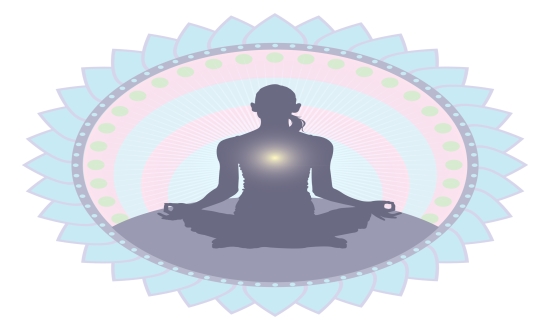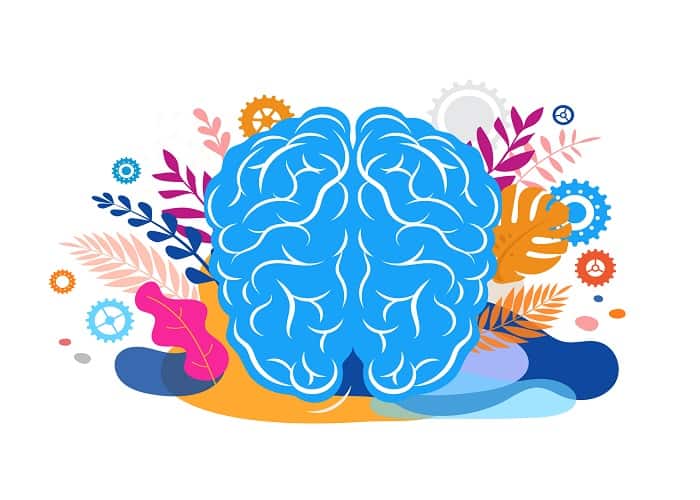What is the best meditation music? Should you meditate with music?
Meditation and music are two anti-stress components that seem to naturally fit together. Music is one of the few things in this world that can engage the entire mind at the same time, while meditation is one of the few things that can help to enhance focus and energy naturally.
In theory, they should be perfect. In reality, however, meditation and music can be difficult to combine.
Much of this combination depends on the music that is chosen.
If you’re listening to your favorite songs, there’s a good chance you’ll want to hum or sing along. Certain styles of music disrupt personal focus.
Then there are products like brainwave entrainment which may or may not help as well that include music. The wrong music can literally destroy a meditation session.
If you’re thinking about combining meditation and music for your own needs, then here are some things you should know to make sure that experience can be as beneficial as possible.
#1. There isn’t one type of music that should be used
Music is all about personal preference. Some people enjoy listening to classic rock anthems. Others prefer the modern dub scene. Classical music is always a favorite when it comes to the combination of music and meditation.
What the music must be able to do is create an ability to focus on mindfulness or specific points so that you can find the perfection of any given moment and use it to your advantage.
Different people like different things, so anything from metal to Mozart can work for meditation.
I even have a friend who puts on his headphones, boots up his Netflix account, and listens to reruns of Futurama because he’s found that the dialogue helps him find a true focal point.
The bottom line is this: if it distracts you, then don’t use it. If your music enhances your experience, then by all means incorporate it.
#2. Music isn’t going to solve your problems

Many people try to incorporate music into their routine of meditation because they’re struggling with distractions.
The idea is that certain melodies or styles of music can eliminate external distractions so that a greater focus on the principles of meditation can be obtained. The problem here is that doing this really just solves one problem by creating a new problem.
The issue isn’t the external distractions. The issue is that the mind becomes distracted.
By adding music, a new distraction point is created. Sure – the external noises aren’t being heard any more. Now the music can become a distraction instead.
If it isn’t the music, then maybe some racing thoughts can become the distraction. Or a strange smell can become a distraction.
The list of ways the brain can stop thinking is long. If you’re becoming distracted by outside stimuli, then this is the problem that must be solved.
#3. Meditation can happen just by getting lost in the music
Have you ever felt energized by a favorite song? Did the time just seem to slip on by as you enjoy the beats, the lyrics, and the melodies of what you were hearing? That is meditation happening right then and there.
It only takes a couple minutes of meditation to begin experiencing the benefits of it, which means getting lost in a favorite song and the joy that it can provide is an easy way to begin meditating if starting a routine has been a struggle.
#4. Deeper states don’t always need music for success
Deep states of meditation can be difficult to achieve under any regular circumstances. This is because it generally requires a prolonged state of focus and clarity that typically comes through experience alone.
For some, however, there is a way to shortcut this process by using the combination of music and binaural beats for their meditation.
Binaural beats help to “tune” the mind to specific frequencies in brainwave entrainment products so that a greater focus can be achieved.
The problem is that because there are “beats” being heard by slightly different frequencies in the audio, it can become a distraction as well.
If you’re the type of person who gets fascinated by squirrels, changes the subject of a conversation at least 3 times while having it, and can’t even finish a favorite movie without getting up to “stretch your legs,” then maybe binaural beats aren’t for you.
Or maybe they are. It all depends on how the mind reacts to them. If you’re struggling with meditation and music seems to be the answer, then brainwave entrainment products could help to provide the results that have been missing.
#5. Volume matters when it comes to meditation and music

The problem with music is that when a good song comes along, our natural inclination is to crank the volume up to 11 and jam out to it. That’s my groove.
Except in meditation, your groove needs to be obtained through clarity and focus. That means you’ve got to go against your natural urge to turn the volume up.
Going against what your body says it should be doing is an easy way to stop a meditation session before it starts.
Choose music that can become a comfortable part of your background experience only to achieve the best results.
Intrusive music is distracting music. Allow the music to comfort you and guide your mind, but instead of letting it become the Captain of the ship, you get to be the one who stays in control.
#6. Headphones can help, but they can also hinder
Many people who link meditation and music together recommend using headphones. This is because it makes the music feel like it is originating from the inside of the body instead of the outside. That makes the body, in theory, feel more in tune with the music.
Headphones also help to block out unwanted sounds.
In these ways, headphones really do help out meditation a lot. The only problem is that not every set of headphones is comfortable.
If your ears begin to ache from wearing your headphones or you’re wearing earbuds that just slip out half the time, then what you’re doing is creating a distraction from your meditation.
If you plan to use headphones, find a comfortable pair that slip over the ears so there isn’t skin-to-skin pressure on the back of your ears. Stereo headphones tend to work the best.
Use a wired set instead of using Bluetooth headphones to minimize the chances of an interruption.
If you don’t have headphones that can meet these needs, then having the music playing in the background from a computer or mobile device can be just as effective.
Remember to use music you’ve downloaded or a premium subscription service as advertisements can be particularly jarring during meditation.
#7. Music should never be a substitute for meditation
![]()
I personally never listen to brainwave entrainment music while I’m meditating.
In the past, I’ve tried to listen to music and meditate at the same time, but I found that it was ineffective. I discovered that I would have more success in listening to music separately and meditating separately every day.
In my routine, I first listen to binaural beats. Then I begin my meditation session. To be adventurous, sometimes I’ll switch them around. One doesn’t replace the other.
When music is playing in the background, my natural inclination is to begin relaxing. I unwind from whatever stresses have come my way during the day.
Background music without headphones helps me to meditate because it is soothing. Put on the headphones and the benefits become greatly reduced.
Some may advise that brainwave entrainment products can “simulate” meditation, replicate it, or even replace it. I would disagree.
Meditation is a one-of-a-kind practice where actions like prayer are not even able to replace it. Religious instructions often call for “prayer AND meditation.” That’s the way I feel about music.
The instructions should say “meditation AND music.” Many have found that music can help speed up the process of relaxation and focus, but only when it is based on whatever your regular meditation practice happens to be.
#8. Audiovisuals and music can be combined to enhance meditation
Have you ever stopped and just stared into a campfire at night? It can be mesmerizing.
Not only do the flames change height and color, but the wood snaps on occasion, there’s the smell of smoke in the air, and the air around you seems to be fresher and cleaner. You just sit and you stare and all of your cares just seem to float away.
A/V stimuli can be very effective at creating a focus point that can be used for meditation. Altered states have long been part of the human experience.
Since Hans Berger discovered alpha brainwaves, we’ve had a better idea of why an altered state can provide the benefits of meditation.
That has continued on into items such as isochronic tones and other forms of tactile entrainment. This area of meditation and music is still growing because of the tremendous benefits that may arise from it, but you can use it to your advantage right now.
Sitting in front of a fireplace is similar to sitting in front of a campfire. Maybe you enjoy swirling patterns or looking at favorite photographs.
Certain smells may enhance your focus as well. Experiment with different combination and you may have an amazing experience the next time you meditate.
#9. There is a difference between “hearing” and “listening”
This is probably the biggest catch there is to meditation and music. Hearing music, just like hearing any other sounds while meditating, does nothing. It exists while you exists and nothing more.
Listening to music, on the other hand, means that you’re paying attention to the music as it is playing. It becomes the object of your focus.
That’s not to say that music shouldn’t be the object of focus from time to time. It gives you the chance to become more present in this given moment so that the mind can be avoided when necessary.
Avoiding the mind is essential for health at times, but it cannot be avoided when it comes to meditation. You must face inward instead of outward.
Sometimes being present means being in your current environment and allowing it to pass you by.
Heavy traffic, jet noise, screaming children… they are all part of you, whether that fact is accepted or not. Because they are part of who you are, they deserve to be recognized and heard as part of the meditation experience at some point.
Otherwise it could be said that you’re not truly embracing your inner self.
#10. You can make your own music and be meditating
Here’s the most exciting concept of music and meditation of all time: you can make your own music and actually be meditating.
It isn’t uncommon for songwriters, musicians, and to some extent even poets to find themselves in tears as they are composing.
The emotional influence that music and words have on the human soul is profound.
By creating, you’re essentially meditating IF you can stay in that moment.
That’s the issue. Staying in the moment. Far too often the mind wanders when music is playing, especially through headphones, much like a drug creates a “high” or “trippy” sensation. It does this because of the emotional influences.
Don’t get trapped by the idea that meditation has to be one certain way. It doesn’t have to be any specific way.
Music and meditation work if you can make sure that it doesn’t become a distraction.
If it does, then you’ll need to change what you are doing so that the focus on your mind can remain first.
Some people like it and enjoy the background ambiance it provides. Others prefer to have only background noises surrounding them.
Music and meditation is ultimately about personal preference. Everyone must find their own best way to meditate and this is simply one journey amongst many paths.
You may also be interested in:
1. Best Headphones For Sleeping and Meditation
2. Best Headphones For Binaural Beats and Brainwave Entrainment
3. Music For Meditation, Sleep, Relaxation and More
4. Different Ways to Meditate in Your Spare Time
——————————————————————-
Image from Pixabay





This is an interesting combination of topics for a blog post. Both music and meditation can have profound affects on a person. Both have their uses definitely, whether used together or separately.
This blog post really resonates with me because I make music myself, and I am also into meditation. I meditate every day and I am sure it really helps me. Not only that, I have also used brainwave entrainment in the past too. I used to use a program where you could design your own brainwave entrainment sessions. I’ve forgotten what it was called now. Do you know which one I mean? Have you used it too?
Thanks for your comment, Marcus. Unfortunately I don’t know which program you’re talking about. I always recommend programs by Inspire3 or iAwake: https://meditationbrainwaves.com/what-is-the-best-brainwave-entrainment-product-programs-for-relaxation-and-meditation/
cheers 🙂
Does the music have to be lyric free? It seems that I would just get distracted from my own thoughts and meditation if there were lyrics and words invading my thoughts. Plus, don’t more quick beats and hyped up types of music naturally increase our heart rate, which makes it harder to relax, calm and meditate? Just a thought.
Hi. I think it’s better when it’s lyric free. When the music has words then you tend to listen to it instead of just hearing it – that’s what I think. Music with lyrics would definitely disturb me.
I really enjoyed this article. I am personally not a fan of loud music or any music with words while trying to meditate. I enjoy nature sounds, that seems to work for me.
It is typically very difficult for me to relax enough to get into any real state of deep meditation. My mind is always going a mile a minute. I appreciate any suggestions to help with that.
Good article. I’ve tried meditation for a while and I enjoyed but always felt I wasn’t quite doing it right and so I stopped. Now, I think that in the achieving focus in meditation is a process and you get better as you do it. So, I should have kept doing it. I As for music and meditation for me it would have to be very soft music and no lyrics, it would be very distracting for me. But if music can make meditation easier for those starting it will be a good thing. I think we all need it.
Hi
It’s the same with me, I also love nature sounds. And whenever I have any problems with focus, when my mind starts to wander too often I then just concentrate on my breath. I’m not trying to count my breaths, I’m just starting to pay more attention to them, I become more aware of them.
This was a very interesting and thorough article. Thanks for the work you invested to put it together and sharing it with us! I use music for so many things, and depending on my mood and intent, I change the genre…
For instance, when I am working on an online project, I will generally listen to classical or something with strings. If I am doing something more light-hearted, I will listen to a variety or perhaps the radio playing a particular era (i.e. 80s or 90s)…
When I meditate, I will use gospel a lot of times, played at a soft level where it will not dstract my process…This would often be used with audiovisual – namely a candle. There are times when I can go inside my mind with nothing, just close out everything and climb in…
In any case I really enjoyed your detailed article here, and it did get me to thinking more what I listen to and when, and how I could chage this up to see what kind of an affect it would have! Thanks much! Good read!
Thanks a lot for your comment, Dave. I also use music for different purposes, for example sometimes I listen to it to wake up and other times I listen to music to calm down or relax. 🙂
Hi Luke
I can see clearly how meditation and music would compliment one another really well 🙂
Personally to relax, I love listening to dance type chill out music and also a little classical too.
You have highlighted 10 Awesome points here when it comes to meditation and music, and these are some things I will take into account.
Cheers!
Neil
I usually use instrumentals and lyric-free music to help myself focus on tasks at hand. I find songs with lyrics distract my thoughts as I tend to focus on the lyrics. Music and meditation is an interesting combination, I’ve practiced a bit of meditation before but never used music. Shall get back to it and with music this time round.
Hey, yes you should get back to meditating. You need to experiment. Try first without music and then with music and see what works better for you.
Sometimes music can relax me and other times it just annoys me while I’m trying to relax. Personally I don’t think I could ever be relaxed to classical music, it kind of creeps me out/bothers me due to being used in some scary movies.
The futurama comment is interesting. That seems so odd but whatever works really!
Hi Luke, I checked out your page on Meditation & Music great page. Well written great content. Keep up the great work! The only suggestion I would have is the pop up adds at the beginning of your page were very distracting I would put those after the content to engage your readers first. I also didn’t see any social Pins except for Pinit. Hope this helps you out?
Have a blessed day!
Larry
Hey, Larry. Thanks for stopping by.
You should see three social buttons hanging on the left hand side of the page.
cheers
I don’t usually meditate with music on in the background, but this article is changing my mind about that.
I haven’t made the connection between getting lost in music and meditation, but you make that connection very clearly. I can see now how it’s a good way for people to sort of practice that particular kind of drifting focus that meditation needs. Thanks!
Wow! I haven’t ever imagined that even metal could work out for meditation. I used to meditate and i prefered a silent environment because that way i could focus more on the moment. But sometimes there were just too much problems in my head that i couldn’t meditate without any music. Your site is great! And i really liked your article. Keep it up!
Hi its Alexey.
Meditation was always part of my daily rituals and is very interesting in particular.
Your post includes some very important points and I actually learned a bit more on this amazing thing.
I meditate without music and am definitely looking forward to adding music to my meditation.
Great advice, and thanks!
Personally, I think that just relaxing in bubble bath after a long days work with a glass of wine and some relaxing calm music can be just as good for me as meditation especially if it was a bad work day.
In terms of mediation I do enjoy trance music and I find it very relaxing to really focus on the music and the different notes and instruments, instead of focusing on breathing techniques of scanning through my body just change things up.
But yes, meditation is really down to personal preference and just practicing it.
That was a very interesting read. Thanks for sharing.
I find myself distracted by external stimuli quite often, not just when meditating. I definitely find the right music to be helpful in these circumstances – although the right music does vary quite wildly according to my mood at any given time.
On a side note, and it may not apply to everyone of course, I have found binaural beats to be very helpful when I need to keep focus.
Interesting post, I really want to start meditating but have never done it before, I just figured it was something you do quietly not a sound around you.
I can see how listening to it and getting lost into the song works I love listening to music so im glad I found this site for when I start, thank you for this great information.
Mediation is SO important! Really love your blog, its a good insight as to what can be good to use whilst meditating. I personally use the song Weightlessness by Marconi Union as its been said that its the best song to physically make you calm. My partner also listens to Eckhart Tolle to meditate, as he uses long gaps and a bell to drown out the thoughts.